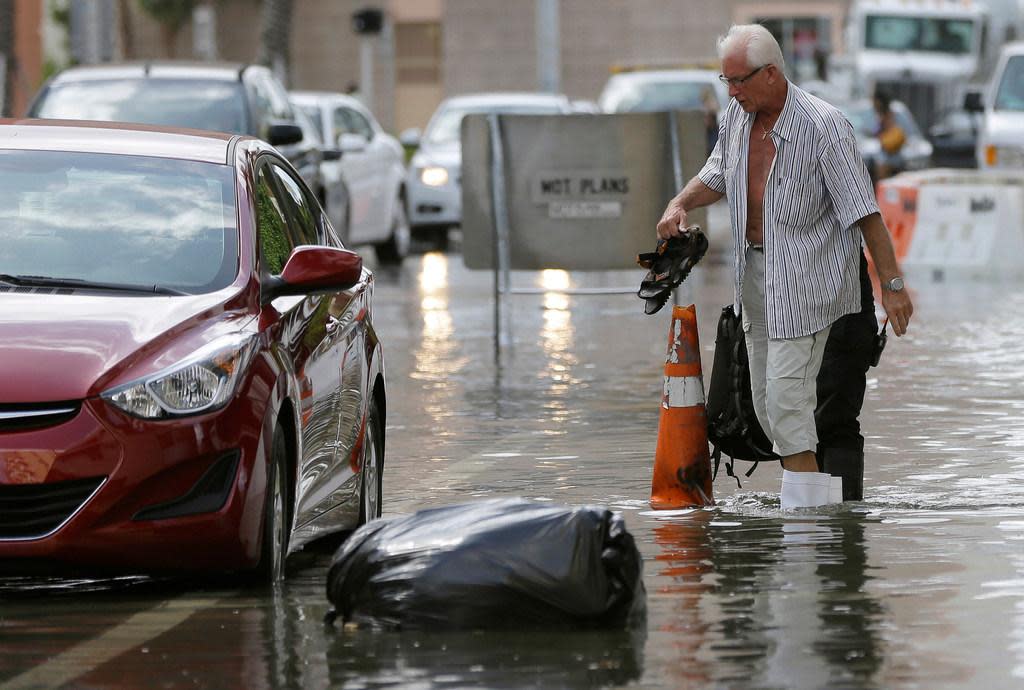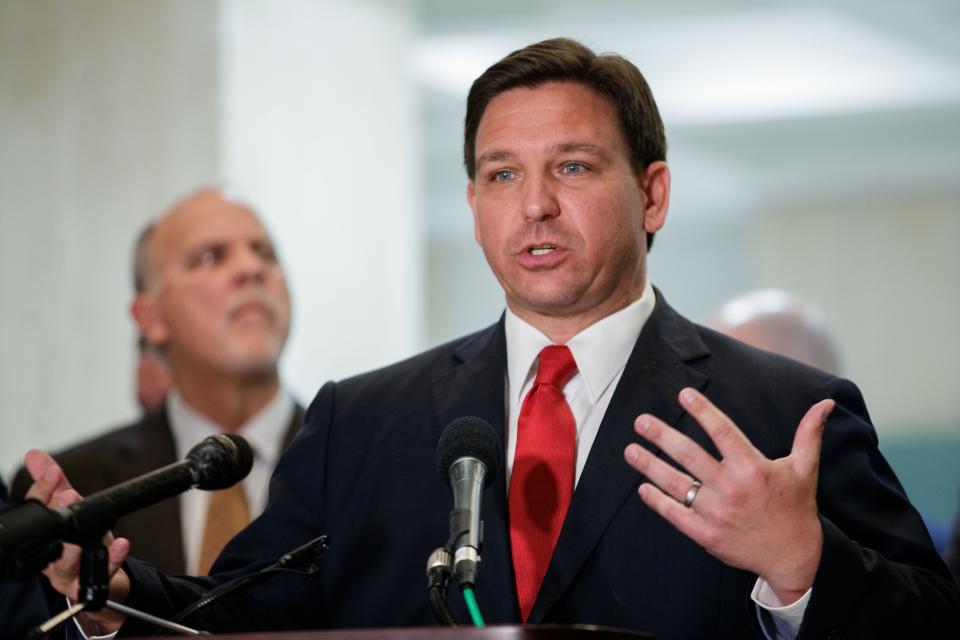Florida’s commitment of $1.2 billion in flood resilience leads the country

- Oops!Something went wrong.Please try again later.
Flooding and sea level rise are already impacting Florida. But rather than shy away from these challenges, lawmakers are confronting them head on.
The Statewide Flooding and Sea Level Rise Resilience bill, signed into law by Gov. Ron DeSantis last week, was only the latest in a series of legislative priorities that better prepares Florida for a wetter future.
This resilience bill permanently establishes a statewide resilience office and the official position of chief resilience officer. It comes less than a year after the state passed its historic Always Ready Law, which established a statewide resilience plan and budgeted a recurring $100 million annually toward resilience projects.
Combined, these two bills mark the largest investment in flood resilience in the United States, head and shoulders above any other state. In the past two years alone, state leaders have chosen to invest over $1.2 billion in flood resilience.
The legislation comes as higher tides lap up against the Sunshine State. A recent report by the National Oceanic and Atmospheric Administration finds that Florida is one of the most vulnerable states to sea level rise, with some regions expecting well over a foot of sea level rise by 2050.
Some of Florida’s biggest cities are especially vulnerable. Miami, St. Petersburg and Tampa rank 8th, 12th and 14th respectively for cities “most at risk” of flooding over the next 30 years, according to a study published last year by First Street Foundation. These numbers highlight the importance of this forward-looking legislation that invests in resilience now.
The bills do more than just invest money in the problem, though — they also prepare thousands of coastal residents for flooding, while specifically protecting smaller communities, which are often overlooked in flood resilience legislation.
For example, the recently passed resilience bill makes the University of South Florida’s Florida Flood Hub for Applied Research and Innovation the tidal and storm surge flooding data repository for local governments. This means that smaller communities will have more access to high-quality data when planning future flood projects.
And through last year’s Always Ready Law, the state began covering a greater percentage of project costs, something that largely benefits smaller communities.
The bills also take an all-of-the-above approach to flooding. For example, because flooding affects transportation as much as development, the new resilience bill requires the Department of Transportation to create a resilience action plan for the state’s highways and other projects. And Always Ready directed the Department of Environmental Protection to create a three-year work plan for flood resilience projects.
Finally, the bills institutionalize resilience.

In 2019, Gov. DeSantis appointed the state’s first chief resilience officer, but by creating the position in law through this year’s resilience bill, the state ensures a focus on flooding and sea level rise for the long term. And Always Ready’s $100 million annually toward resilience projects makes flood protection an ongoing investment and long-term priority for Florida.
The American Flood Coalition was proud to work with state leaders on this bill and others, all of which mark a significant change in how Florida plans for and addresses the impacts of higher seas, stronger storms and more frequent flooding.
With the recent bills, Florida shows how flood solutions can work for all communities. We hope other states follow suit.
Kate Wesner lives in Jupiter and is Florida director of the American Flood Coalition.
Join the conversation
Send a letter to the editor (up to 200 words) to letters@gainesville.com. Letters must include the writer's full name and city of residence. Additional guidelines for submitting letters and longer guest columns can be found at bit.ly/sunopinionguidelines.
Journalism matters. Your support matters.
Get a digital subscription to the Gainesville Sun. Includes must-see content on Gainesville.com and Gatorsports.com, breaking news and updates on all your devices, and access to the eEdition. Visit www.gainesville.com/subscribenow to sign up.
This article originally appeared on Tallahassee Democrat: Kate Wesner: Florida confronting issues of flooding and sea level rise

